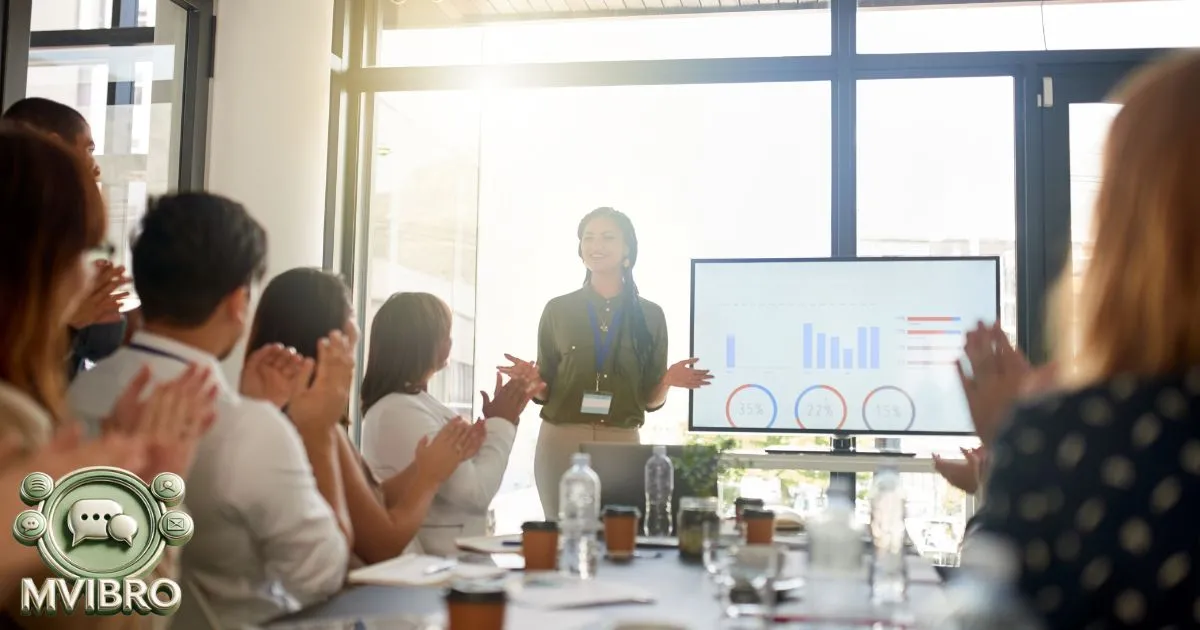“Age is just a number, but confidence is timeless!”
In today’s world, ageism can creep into conversations subtly or blatantly, leaving individuals feeling disrespected or undermined.It’s a dismissive comment about being “too young to understand” or “too old to keep up,” these remarks can sting. Addressing ageist remarks confidently is an essential skill that ensures respect and understanding in both personal and professional spaces.
Dealing with such comments doesn’t have to be confrontational. Instead, it can be an opportunity to demonstrate your poise, wisdom, and quick thinking. This guide will empower you with a range of effective comebacks tailored to various situations, helping you respond with grace, humor, or assertiveness, depending on the context.
By the end of this post, you’ll be equipped with creative, insightful, and assertive responses to handle any ageist remark confidently. Let’s explore 15 unique types of comebacks, each with its own flavor and purpose, to help you navigate these tricky conversations with ease.
List of Ageist Remarks with Confidence
- Humorous/Playful Comebacks
- Confident/Assertive Comebacks
- Educational/Informative Comebacks
- Sarcastic Comebacks
- Calm & Composed Comebacks
- Deflecting/Diverting Comebacks
- Direct/No-Nonsense Comebacks
- Self-Deprecating Comebacks
- Philosophical Comebacks
- Encouraging Diversity Responses
- Role-Reversal Comebacks
- Empathetic Comebacks
- Strengthening Your Point Comebacks
- Historical/Pop Culture References
- Parenting/Grandparenting Angle
- Professional Expertise Responses
- Technology/Innovation Counter
- Sports/Physical Activity Angle
- Personal Growth Perspective
- Humbling/Graceful Comebacks
Humorous/Playful Comebacks
- “Aging is like wine—you just can’t rush perfection.”
- “Wow, you’re a walking calendar. What’s next week looking like?”
- “If being young is fun, wait till you try being me.”
- “Good thing I’m aging, not freezing in time like a statue.”
- “Careful, I might charge you for an autograph from this ancient artifact.”
- “At least I have age on my side—what’s your excuse?”
- “I age so well, I confuse mirrors.”
- “They say wisdom comes with age—guess you missed out.”
- “Age is just proof of all the birthdays I’ve aced.”
- “Younger or older, my charm doesn’t expire.”
- “Oh, is it ‘judge someone by their age’ day already?”
- “Don’t worry, my age won’t come after you.”
- “The best thing about my age? I’ve got stories, not just Snapchat streaks.”
- “I might be old, but I’m still outpacing you!”
- “Relax, I’ve been outrunning ageist comments for years.”
Confident/Assertive Comebacks
- “I value my experience—should I explain it to you?”
- “Age doesn’t define ability, actions do.”
- “Thanks for noticing my journey—it’s been incredible so far.”
- “I can keep up just fine, thank you.”
- “I earned every year I’ve lived, and I’m proud of it.”
- “My skills don’t age; they evolve.”
- “A number doesn’t dictate my worth.”
- “Let’s focus on my ideas, not my age.”
- “Don’t mistake your assumptions for my reality.”
- “My age doesn’t hold me back, but stereotypes might hold you back.”
- “Confident people don’t rely on age to measure someone’s value.”
- “I prove every day that I’m more than capable.”
- “Shall I show you how my experience is an asset?”
- “Respect goes beyond counting years.”
- “Your comment says more about you than my age does about me.”
Educational/Informative Comebacks
- “Did you know that ageism affects people of all ages, not just seniors?”
- “Research shows that age diversity improves teamwork and productivity.”
- “Age doesn’t determine ability; it enhances perspective.”
- “You’d be surprised how often ageist remarks discourage potential talent.”
- “Ageism is one of the most subtle yet harmful forms of bias.”
- “Experience grows with age, just like innovation thrives on diversity.”
- “Generational collaboration drives progress—why not embrace it?”
- “It’s worth noting that some of the world’s greatest minds achieved success later in life.”
- “Age is a factor of time, not competence.”

- “Many studies show that wisdom increases with age.”
- “Aging is inevitable; it’s the journey that shapes character.”
- “Did you know age-inclusive environments are happier and more innovative?”
- “History is filled with examples of people breaking barriers at any age.”
- “Your assumptions may be limiting your perspective.”
- “Age should inspire admiration, not prejudice.”
Sarcastic Comebacks
- “Oh, I didn’t realize you were a certified ageologist.”
- “Wow, you must be a historian with insights like that.”
- “Thanks for reminding me, I’ll alert my calendar.”
- “I didn’t know my birth certificate was public knowledge.”
- “Oh, is this a guessing game? Let me try yours next.”
- “Good thing I have my walker nearby—oh wait, I don’t.”
- “It must be exhausting carrying around all those stereotypes.”
- “Wow, groundbreaking observation. Truly.”
- “And here I thought your opinion would be insightful.”
- “Should I be taking notes on this wisdom of yours?”
- “I’d clap, but I’m too old to risk arthritis.”
- “Oh, I didn’t realize age was your area of expertise.”
- “Glad you’re keeping track of things I don’t care about.”
- “Oh, is that the best you’ve got?”
- “Let me get my ancient notebook for this one.”
Calm & Composed Comebacks
- “I appreciate your perspective, but age isn’t relevant here.”
- “Let’s focus on the discussion rather than my age.”
- “Age doesn’t define my abilities, but I’m happy to clarify if needed.”
- “Thanks for your comment, but I don’t find it constructive.”
- “It’s interesting you feel that way; I’d prefer we talk facts.”
- “I understand your concern, but my experience speaks otherwise.”
- “Let’s keep the conversation on track and leave age out of it.”
- “I’d prefer we approach this with mutual respect.”
- “That’s one perspective, though I don’t share it.”
- “Age isn’t a barrier for me, but thanks for sharing.”
- “I’d rather focus on what’s relevant to the task.”
- “Let’s continue with the facts instead of assumptions.”
- “I see what you’re saying, but let’s shift the focus.”
- “That’s your opinion, and I respect your right to it.”
- “Let’s steer back to the topic at hand, shall we?”
Deflecting/Diverting Comebacks
- “Isn’t it great we’re all different? Keeps things interesting!”
- “I’d love to discuss that another time—right now, let’s focus on this.”
- “Interesting observation. Back to the topic, though!”
- “Funny you say that, but I’d prefer to hear your thoughts on [specific topic].”
- “We all have our quirks. Speaking of which, let’s move on.”
- “Noted! So, about that project…”
- “That’s one perspective. Now, let’s refocus here.”
- “Sure, age is a number. Let’s not get sidetracked by it.”
- “Let’s put age aside and talk about what really matters.”
- “You’re observant, but I’d rather discuss the main issue.”
- “I’m curious—what’s your take on the actual topic here?”
- “That’s a fun thought! Now, how about this idea…”
- “It’s always great to reflect. Back to business, though!”
- “Let’s not let age distract us from the bigger picture.”
- “Great insight! Now, where were we on the main point?”
Responding to Being Underestimated Helpful Tips
Direct/No-Nonsense Comebacks
- “I don’t see how age is relevant here.”
- “Let’s stick to facts, not stereotypes.”
- “I’m not here to discuss my age, but the task at hand.”
- “Your comment doesn’t add value to this conversation.”
- “Let’s keep the focus on the topic, not personal attributes.”
- “Age doesn’t affect my capabilities, so let’s move on.”
- “I’ll stop you right there—age doesn’t define me.”
- “That remark isn’t helpful or appropriate.”
- “Let’s get back to what’s important.”
- “I’m here to contribute, not justify my age.”
- “Such comments don’t reflect well on you.”
- “This conversation is about ideas, not age.”
- “Let’s redirect our energy to something productive.”
- “I expect more constructive input from you.”
- “Let’s leave personal judgments out of this.”
Self-Deprecating Comebacks
- “You’re right; I’ve been around long enough to master this!”
- “Don’t mind me; I’m just a vintage edition of awesome.”
- “I may be older, but my jokes are timeless.”
- “Ah, the joys of being a relic with experience!”
- “Old enough to know better, young enough to try anyway.”
- “Yep, I’ve got years of practice at being amazing.”
- “Aging like fine cheese—strong and unforgettable!”
- “Who needs youth when you’ve got wit like mine?”
- “Call me ancient, but I’m still ahead of the curve.”
- “Sure, I’m seasoned—seasoned with style!”
- “Old but gold, my friend.”
- “I’m not old; I’m just on my second round of awesome.”
- “I may be vintage, but I’m still the classic choice.”
- “Younger folks can learn from this living encyclopedia!”
- “Old age comes with perks like outsmarting remarks like this.”
Philosophical Comebacks
- “Age is just a concept; wisdom is timeless.”
- “Time measures age, but growth measures life.”
- “Experience is the best teacher, and age is its pupil.”
- “Why focus on numbers when the journey matters more?”
- “Youth and age are two sides of the same coin of growth.”
- “A tree’s age only adds to its strength and beauty.”
- “The years behind me are the foundation of the life ahead.”
- “Every age is a season, and I’m enjoying the harvest.”
- “The passage of time adds depth to life, not limitations.”
- “Age is a bridge connecting wisdom to opportunity.”
- “The question isn’t how old you are, but how well you’ve lived.”
- “Every wrinkle is a story, and I’m a bestseller.”
- “Age is like the rings of a tree—it shows strength, not weakness.”
- “Life isn’t about age; it’s about how you make your years count.”
- “Aging isn’t losing youth; it’s gaining perspective.”
Encouraging Diversity Responses
- “Age diversity brings new ideas and experiences to the table.”
- “Every generation contributes something valuable.”
- “Different ages bring different strengths—let’s celebrate that.”
- “Collaboration thrives on diversity, including age.”
- “Age is just one layer of the diversity we need.”
- “Teamwork improves when all ages are included.”
- “Every age group offers unique insights we can learn from.”
- “Let’s appreciate perspectives that come from experience and youth alike.”
- “The most successful teams value age diversity.”
- “Age shouldn’t divide us; it should unite our strengths.”
- “Age is part of the broader spectrum of inclusion.”
- “There’s strength in differences, including age.”
- “Great ideas don’t have an age limit.”
- “Age diversity builds a richer understanding of the world.”
- “The best solutions come from diverse ages working together.”
Role-Reversal Comebacks
- “Funny, I thought age brought wisdom—you might prove me wrong.”
- “Is this the part where you share your ancient wisdom?”
- “Do you treat everyone older than you this way, or am I special?”
- “You must have mastered the art of ageism early on.”
- “Tell me, what would you say if our roles were reversed?”
- “Would you find this comment amusing if directed at you?”
- “I wonder if your perspective will change when you’re my age.”
- “If you were in my position, how would you respond?”
- “It must be easy to comment when you’re not in my shoes.”
- “Would you appreciate being judged for your age?”
- “Let’s pretend I’m younger—would that make my point valid?”
- “I’m curious—how would you feel receiving such remarks?”
- “Imagine I said this to you. How would you take it?”
- “Would you like me to say the same thing to you?”
- “Funny, your logic wouldn’t hold up if our ages swapped.”
Empathetic Comebacks
- “I understand where you’re coming from, but let’s look beyond age.”
- “It’s easy to make assumptions, but I’m here to prove them wrong.”
- “I get that age might seem like a factor, but let’s focus on skills.”
- “I hear your concern, and I’d love to discuss this further.”
- “I know it’s common to think that way, but there’s more to the story.”
- “It’s understandable to question experience, but age doesn’t define capability.”
- “I appreciate your perspective; let me show you mine.”
- “I can see why you might think that, but let me share my insight.”
- “Your remark reflects a common mindset, and I’d love to challenge it.”
- “I value your opinion, but let’s have a conversation about stereotypes.”
- “I get it; age can feel like a barrier, but let’s break it down together.”
- “You’re not alone in thinking that; it’s a societal norm we can change.”
- “I appreciate the dialogue; let’s explore this topic together.”
- “Your viewpoint is noted, but let me show you what I bring to the table.”
- “It’s okay to have questions; I’m here to answer them with my work.”
Strengthening Your Point Comebacks
- “Age only enhances my ability to excel in this area.”
- “Here’s why my experience matters: [specific example].”
- “I’ve used my years to build skills that matter most here.”
- “The results I’ve delivered speak louder than my age.”
- “Let’s focus on the outcomes I’ve achieved, not the years I’ve lived.”
- “Experience adds value, and I bring plenty to the table.”
- “The work I’ve done is proof of my abilities, regardless of age.”
- “Age isn’t a barrier to success; it’s a building block.”
- “My track record shows I’m capable, no matter how old I am.”
- “Let me demonstrate how my experience contributes to this project.”
- “My contributions are what make me stand out, not my age.”
- “What matters is the value I provide, not the years I’ve existed.”
- “I’ve grown with time, and my expertise shows it.”
- “Here’s how I’ve used my years to make a positive impact.”
- “Age is just a number; my results are what count.”
Historical/Pop Culture References
- “Did you know Colonel Sanders started KFC at 65?”
- “If age mattered, would Morgan Freeman still be narrating everything?”
- “Michelangelo painted the Sistine Chapel well into his 30s and beyond.”
- “Betty White’s career took off later in life—age never stopped her.”
- “Think of Picasso—his work only improved with age.”
- “Nelson Mandela changed the world in his later years.”
- “Gandalf wasn’t young, but he was still the wisest in the room!”
- “Coco Chanel didn’t create timeless fashion in her teens.”
- “JK Rowling’s fame came after she faced countless rejections—age didn’t stop her.”
- “Imagine telling Einstein he was too old to think creatively!”
- “Mother Teresa’s best work came later in life.”
- “Leonardo da Vinci was always learning, no matter his age.”
- “Julia Child mastered French cooking later in life—proof that it’s never too late.”
- “Harrison Ford was a carpenter before his career took off—age didn’t define him.”
- “Age didn’t stop Winston Churchill from leading a nation in crisis.”
Parenting/Grandparenting Angle
- “You know what they say, ‘Older and wiser.’”
- “My kids would laugh at this comment; they know better!”
- “Parenting teaches you patience—ageist remarks can’t shake me.”
- “I’ve handled toddlers; this is nothing!”
- “Grandkids don’t care about age; they care about love and fun.”
- “You’ll realize the value of age when you’re the one being called ‘grandparent.’”
- “Parenting gives you a thick skin; this doesn’t faze me.”
- “You’d be surprised how much age helps in dealing with challenges.”
- “Being a parent prepares you for all kinds of judgment.”
- “Grandparents are the real MVPs—experience always wins.”
- “Raising kids teaches you that age is just a number.”
- “Kids don’t care about age—they care about what you bring to the table.”
- “If you’ve raised kids, you can handle anything, even remarks like this.”
- “Being called a grandparent is a badge of honor, not an insult.”
- “Parents and grandparents are proof that age is strength.”
Professional Expertise Responses
- “Age is why I’ve mastered this field—experience matters.”
- “Years in the industry mean I’ve seen it all and solved it all.”
- “Expertise grows with time, and I’m living proof of that.”
- “Would you question a doctor with decades of experience?”
- “Age lets me see patterns others might miss.”
- “The years behind me only enhance my professional acumen.”
- “I’ve earned my stripes in this profession through time and effort.”
- “Longevity in this field gives me an edge others don’t have.”
- “My portfolio shows how I’ve turned years into expertise.”
- “The value I add comes from the time I’ve invested in learning.”
- “In this profession, experience is gold—and I’ve got plenty.”
- “Age has given me insights you can’t learn in books.”
- “Time isn’t a limitation; it’s a professional asset.”
- “If success were tied to youth, we’d all retire at 25.”
- “Age isn’t a challenge—it’s my greatest professional strength.”
Technology/Innovation Counter
- “Steve Jobs created some of his best innovations later in life.”
- “Technology evolves, and so do I—age doesn’t stop learning.”
- “Experience teaches you how to adapt to new tech faster.”
- “The tools may be new, but the principles remain the same.”
- “I’ve witnessed the evolution of tech; that’s my advantage.”
- “Who says age can’t be tech-savvy? I’m proof it can.”
- “I’ve used my years to master both old and new technologies.”
- “Tech is ageless; anyone can innovate with the right mindset.”
- “The internet doesn’t discriminate by age, and neither should you.”
- “I grew up with rotary phones and now excel with AI—adaptation is key.”
- “Experience bridges the gap between traditional and modern tech.”
- “Tech doesn’t scare me—it excites me to learn and grow.”
- “The wisdom of age combined with the innovation of tech is unstoppable.”
- “I’ve seen tech trends come and go; I know how to stay relevant.”
- “Being older means I know when to embrace new tools and when to let them pass.”
Sports/Physical Activity Angle
- “Tom Brady kept winning well into his 40s—age is just a number.”
- “LeBron James proves that experience enhances performance, even in sports.”
- “Sports legends show us that skill and strategy trump age every time.”
- “I may not sprint, but I know how to pace myself to win.”
- “Wisdom and endurance often outperform raw speed.”
- “They said Federer was too old—and yet, he kept making history.”
- “Experience in sports often means fewer mistakes and better plays.”
- “Age doesn’t stop you from winning; it teaches you how to win smarter.”
- “Even marathoners prove age isn’t a barrier—it’s a strength.”
- “I’ve learned that playing the long game is often more rewarding.”
- “Michael Jordan didn’t let age dictate his love for basketball.”
- “Even chess, a mental sport, thrives on years of practice and expertise.”
- “The older players on the field often have the most strategic impact.”
- “I may not be 20, but I’m agile where it counts—mentally and emotionally.”
- “Sports are proof that age doesn’t determine potential; passion does.”
Personal Growth Perspective
- “Age has given me the tools to continuously grow and adapt.”
- “I’m proud of the person I’ve become through years of learning.”
- “Growth doesn’t stop at a number; it’s a lifelong journey.”
- “Every year adds layers to my understanding of myself and the world.”
- “Age has taught me resilience, patience, and grace under pressure.”
- “I’ve used every stage of life as a stepping stone for growth.”
- “The journey of self-improvement never ends, no matter how old you are.”

- “With age comes clarity on what truly matters.”
- “I see challenges as opportunities, thanks to the wisdom I’ve gained.”
- “Age has taught me to embrace change as part of growth.”
- “Each year adds value to my ability to contribute meaningfully.”
- “I’m constantly evolving—age doesn’t stop that process.”
- “Growth is about attitude, not age.”
- “I’ve learned to turn obstacles into opportunities, thanks to my years of experience.”
- “The older I get, the more I appreciate the beauty of growth.”
Humbling/Graceful Comebacks
- “Thank you for noticing my years—they’ve been a gift.”
- “I appreciate your perspective, but I focus on what I can control.”
- “Every wrinkle is a story, and I wear them with pride.”
- “Age isn’t a limit; it’s a testament to resilience.”
- “I take pride in the journey that brought me here.”
- “You’re right, I have lived a lot—and I’ve loved every moment.”
- “I’ve been lucky to experience so much, and I’m still learning.”
- “Every year has added depth to my understanding of life.”
- “I’m grateful for the years that have shaped who I am today.”
- “Thank you for pointing out my age—it’s something I’m proud of.”
- “I’m fortunate to have the wisdom that comes with time.”
- “I’ve earned every year, and I’m proud of the journey.”
- “The years behind me are a reflection of lessons learned and love shared.”
- “It’s a privilege to grow older and continue making an impact.”
- “Grace is the gift of age, and I embrace it fully.”
Understanding Ageism
- Definition of Ageism
Ageism refers to prejudice or discrimination based on a person’s age. It often manifests in stereotypes, misconceptions, or biases that undermine the abilities and value of individuals simply because of their age. This bias can affect both younger and older generations, shaping societal attitudes and interactions.
- Common Examples of Ageist Remarks
- “You’re too old to learn something new.”
- “This is a young person’s game.”
- “Aren’t you too young to handle this responsibility?”
- “Why bother at your age?”
- “When I was your age, I already had everything figured out.”
- “You’re too young to have an opinion on this matter.”
- “You should retire and make way for younger talent.”
- “You can’t teach an old dog new tricks.”
- “You don’t look old enough to be taken seriously.”
- “Are you sure you can keep up with the pace at your age?”
- How Ageism Impacts People
Ageism can lead to feelings of inferiority, exclusion, and frustration. It often hampers individuals’ confidence, limits opportunities, and perpetuates a cycle of negative self-perception. Both younger and older people can experience barriers in social, professional, and personal settings due to such biases.
Why Ageist Remarks Are Harmful
- The Psychological Effect on Individuals
Ageist remarks can profoundly affect mental health, leading to low self-esteem, anxiety, or depression. Being repeatedly subjected to such comments can instill a sense of inadequacy, discouraging individuals from pursuing their goals or participating fully in life.
- Societal Consequences of Ageism
When ageism becomes normalized, society loses the diversity of perspectives that people of all ages bring. It creates divisions, perpetuates stereotypes, and limits the collective growth of communities, workplaces, and institutions.
- The Need for Inclusivity and Respect
Promoting inclusivity fosters a culture of mutual respect. It ensures that individuals of all ages feel valued and heard, allowing society to benefit from the unique contributions each generation brings to the table.
Why It’s Important to Respond to Ageist Remarks
- Creating Awareness
Addressing ageist comments helps educate others and sheds light on the impact such remarks can have. It encourages people to reconsider their biases and fosters a more understanding environment.
- Challenging Stereotypes
By responding confidently, you challenge misconceptions about age, demonstrating that capabilities and potential aren’t dictated by numbers but by mindset and effort.
- Promoting Equality in All Age Groups
Responding to ageism reinforces the message that everyone deserves respect and opportunities, regardless of their age. It advocates for equality and inspires others to stand against discriminatory behavior.
How to Respond to Ageist Remarks: A Step-by-Step Guide
Step 1: Stay Calm and Composed
Take a moment to breathe and collect your thoughts before responding. Staying calm allows you to address the remark confidently and effectively without escalating the situation.
Step 2: Assess the Situation
Determine whether the remark was intentional or a result of ignorance or misunderstanding. This assessment helps tailor your response appropriately.
Step 3: Educate the Person
Gently explain why the comment is inappropriate or hurtful, using facts or personal experiences to illustrate its impact.
Step 4: Use Humor to Defuse Tension
A playful yet pointed response can neutralize the remark while keeping the atmosphere light. For example, “If being older means being wiser, I’m definitely winning!”
Step 5: Set Boundaries
Firmly but respectfully let the person know that such comments are unwelcome. For instance, “I’d appreciate it if you avoided assumptions based on my age.”
Responding to Ageist Remarks in Professional Settings

- The Importance of Addressing Ageism at Work
Workplace ageism can limit opportunities and undermine morale. Addressing it ensures a healthier, more inclusive environment where talent and experience are valued.
- What to Do if an Ageist Remark Comes from a Superior or Coworker
Respond with professionalism and assertiveness. Use clear, respectful language to address the issue, and involve HR if necessary to ensure accountability.
- Maintaining Professionalism While Standing Up for Yourself
While addressing the remark, remain diplomatic and composed. Focus on facts and avoid letting emotions take control, as this helps maintain your credibility.
Responding to Ageist Remarks in Social Situations
- How to Address Ageism in Family or Social Circles
Open a conversation about how ageist remarks can be harmful. Use relatable examples to make others aware of their impact.
- When to Let It Slide and When to Speak Up
Not all situations require a response. Assess the context and decide whether addressing the comment will lead to a productive discussion or unnecessary conflict.
- The Power of Role Models in Changing Behavior
Lead by example by treating people of all ages with respect and inclusivity. Your actions can inspire others to do the same.
What Not to Do When Responding to Ageist Remarks
- Avoiding Aggressive or Defensive Responses
Responding aggressively can escalate the situation and distract from the issue at hand. Choose a calm, constructive approach instead.
- How to Keep the Conversation Constructive
Focus on the behavior, not the person, and aim to educate and inform rather than criticize or attack.
- Maintaining Self-Respect in the Process
Stand firm in your values while remaining respectful. Remember, addressing ageism is about promoting mutual understanding and respect.
Empowering Yourself Against Ageist Remarks
- Building Confidence to Confront Ageism
Confidence comes from knowing your worth. Practice responses beforehand to feel more prepared in such situations.
- Learning How to Stay Resilient
Resilience helps you navigate ageist remarks without internalizing them. Focus on your strengths and achievements to stay grounded.
- Finding Support from Others Who Share Your Experiences
Join communities or groups where people share similar experiences. Support networks can provide encouragement and advice.
What Can Society Do to Address Ageism?
- Raising Awareness Through Education
Educating people about the harmful effects of ageism can shift societal attitudes and promote inclusivity.
- Policy Changes and Inclusive Practices
Implementing policies that prevent age discrimination in workplaces, schools, and communities ensures equal opportunities for all.
- The Role of Media and Social Influencers in Combating Ageism
Media and influencers can play a pivotal role by challenging stereotypes and portraying people of all ages positively.
Answers to Key Questions
How do I handle persistent ageist remarks at work?
Remain calm, assert your point with confidence, and address the behavior respectfully. Highlight your skills and contributions to shift the focus from age.
What if humor backfires in professional settings?
When humor doesn’t suit the situation, use assertive or educational comebacks instead. Adapt your response to the audience and setting.
Can calling out ageism damage relationships?
It depends on how you address it. Use empathetic or humorous approaches to foster understanding without escalating tension.
Are ageist remarks illegal?
Ageist comments can violate workplace anti-discrimination laws in many countries. Consult HR if they persist or create a hostile environment.
What’s the best way to educate someone about ageism?
Share informative responses calmly, like pointing out how ageism impacts relationships or workplaces negatively, while emphasizing mutual respect.
Conclusion
Ageist remarks can be challenging, but they also provide a moment to shine, educate, and assert yourself. Whether you respond with humor, confidence, or empathy, the goal is to create meaningful dialogue and stand up for yourself.
Each comeback shared in this guide is designed to inspire you to respond in ways that preserve your dignity and command respect. Remember, your worth isn’t tied to your age it’s tied to who you are.

Hi! I’m Lauren Reynolds, a proud voice at mvibro.com, delivering quick, impactful responses and creative comebacks to elevate your communication game.

